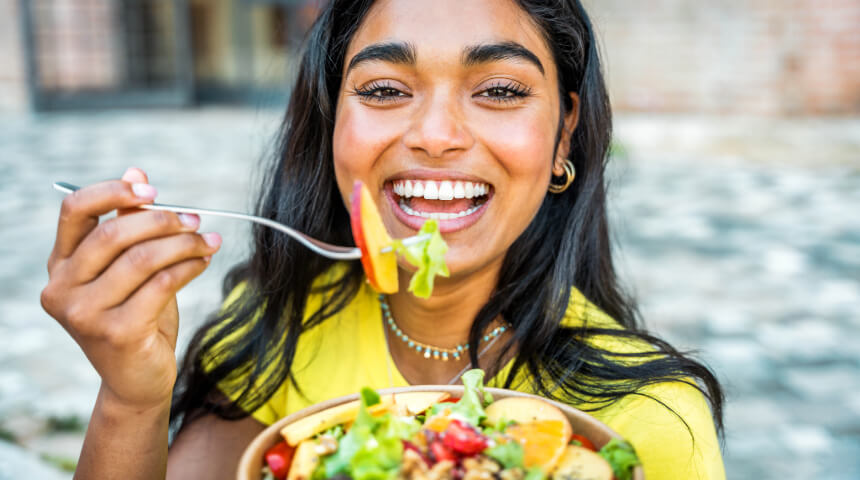Surprising Reasons To Limit Drinking During the Holidays
Nobody wants to talk about the dangers of alcohol at this time of year — or, perhaps, at all — but there’s no more important time. Even Americans who drink only moderately consume as much as 27 percent more this season, and one in five reports drinking every day they are off work. (We won’t ask for a show of hands.)
Nutritionists will tell you there are no “bad” foods. But there are better and worse choices. One issue with holiday drinking is saving up calories in order to consume excessive amounts of alcohol later. The problem with hoarding calories is that you are forgoing vitamins, minerals and water your body needs — and you’ll be picking up plenty of sugar with those drinks.
The other big concern is behavioral. Humans are creatures of habit, and it doesn’t take us long -- as little as two months -- to form a new one. For many folks, the merry-making rolls from October through December, plenty of time to form new habits you might be sorry to carry into the new year. Another reason to slow down on your drinking: the risk of cancer. More on that later.
A Supersize Problem
If you look at the world’s so-called Blue Zones, where people seem to live longer and have a higher-quality old age — Okinawa, Japan; Sardinia, Italy; Nicoya, Costa Rica — you’ll find they do drink. But their relationship to alcohol differs from our excess mindset. When they have a glass of wine — usually one — they’re having it with a nutrient-dense meal filled with healthy fats and fiber-filled vegetables and carbohydrates. The wine adds to the meal, providing antioxidants.
Perhaps more important is the positive social component. They’re not drinking their feelings to cope with emotional stress; they’re enhancing social and environmental experiences within the context of good nutrition. Wine does not produce longevity, but in those places it is one component of a lifestyle that reduces stress and promotes peace and gentleness.
Alcohol and Cancer
Along with nitrates, alcohol is one of only two food substances classified by the World Health Organization as a Group 1 carcinogen — right up there with asbestos, radiation and tobacco. The Centers for Disease Control and Prevention puts it simply: “The less alcohol you drink, the lower your risk for cancer.”
Our bodies turn alcohol into acetaldehyde, which damages DNA and prevents the body from repairing that damage. That can cause cells to grow out of control, creating tumors. Cancers linked to alcohol include larynx, esophagus, colon, liver, rectum, breast and prostate. Wondering why this isn’t as widely acknowledged as, say, the dangers of cigarettes? Chalk it up to the nearly $8 billion spent globally this year on alcohol advertising, much of which targets young people and heavy drinkers.
So, is a glass of wine with a holiday meal going to kill you? No. If you’re a person who has difficulty stopping at one, should you think harder about your consumption? Very likely.
To Drink or Not To Drink
Guidelines created by the U.S. Departments of Agriculture and Health and Human Services recommend two drinks or fewer a day for men and one or fewer for women. Whether or not you drink this season, you need some strategies.
- If you do plan to imbibe, start with water. Having a glass of water before every drink will keep you hydrated and give you a sense of fullness and calm. Pair drinks with balanced meals that include fiber, fat and protein — or have a sensible meal before you head out — to sustain you and make you feel more confident and in authority over how much you will consume. Starting with an empty stomach is a sure way to undermine moderation as alcohol affects your reasoning. Shoot for an amount of alcohol that allows you to participate and enjoy the social component.
- Don’t intend to drink? You may encounter pressure to participate. Be prepared: Keep your hands on your cup of water, or choose another option like a mocktail, fragrant tea or sparking juice that you enjoy and can make you feel a part of whatever’s going on. If you’re worried about pressure, go in with a catch phrase: No thanks, I’ll pass. Usually fellow party-goers will be respectful if you calmly and confidently state your intentions. If they don’t, go to different holiday parties with people who do respect your boundaries.
The Bottom Line
Know your limits, don’t test your limits. If you tend to be habitual or excessive, be aware and honest with yourself. If two is going to turn into three or more, stop with one. If one really works for you — if you’re feeling great, your mind is clear, you’re sleeping well and meeting fitness goals — don’t let anybody push you to go further. Alcohol can be enjoyed without guilt or shame if done in a smart way that works for you, not against you.
Choose to Stay in Touch
Sign up to receive the latest health news and trends, wellness & prevention tips, and much more from Orlando Health.
Sign Up










